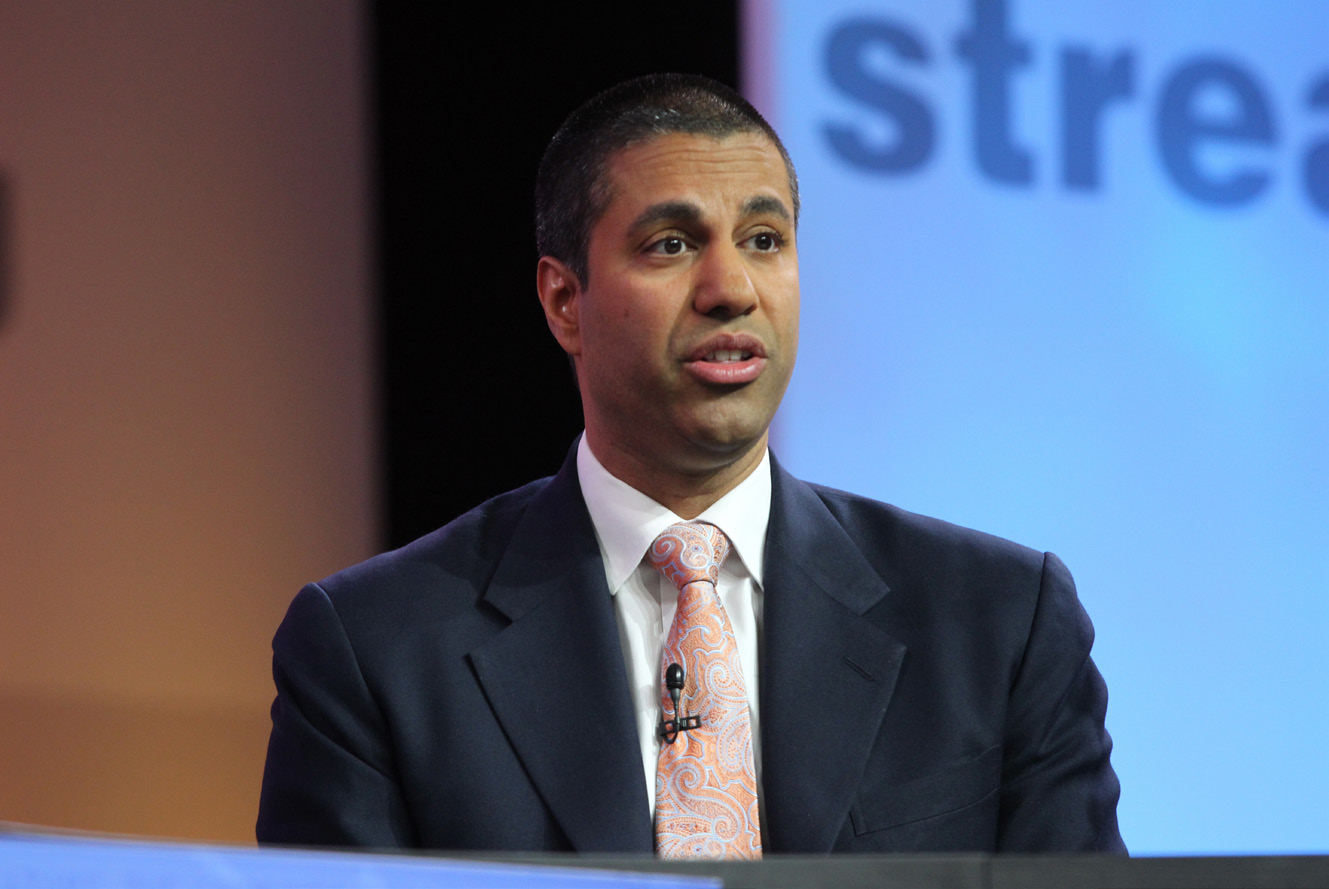NAB Show: FCC's Pai: Trust is Broadcasting's Competitive Edge

The smarter way to stay on top of broadcasting and cable industry. Sign up below
You are now subscribed
Your newsletter sign-up was successful
FCC chair Ajit Pai, perhaps channeling commissioner Bendan Carr from the day before, told a NAB Show audience that he thought it was sound advice for broadcasters to think of themselves as digital media companies. But he had a caveat: "You are broadcasters first," and that local connection gives them a competitive edge over the, well, edge.
And perhaps channeling a bit of Doctor Seuss, the chairman suggested being a broadcaster wasn't something you could wrap up in a "media company" label, perhaps being a broadcaster means a little bit more, he suggested.
Pai was addressing the "We Are Broadcasters” session at the 2019 NAB Show in Las Vegas, where the day before Carr had focused on broadcasters as a new one-to-many broadband pipe given the possibilities of the ATSC 3.0 transition.
Pai has also talked up that promising future, but chose to focus instead on what brought broadcasters to the dance in the first place.
"Presumably, then, this is a celebration of the characteristics that you think define your industry," Pai said. So, that means the primary honorees are folks like the broadcast engineers "who do the important behind-the-scenes technical work that allows content to reach the masses."
He said it was the trust broadcasters have built" that makes them stand out in a crowded media landscape. He said that personal connection is broadcasters greatest competitive edge.
He was obviously preaching to the choir. Arguably NAB's prime directive is the local connection, the news and weather and emergency info, that other media can't or at least have not duplicated.
The smarter way to stay on top of broadcasting and cable industry. Sign up below
Pai made that point as well, focusing on online. He said that while two thirds of Americans get news via social media, "they don't trust it."
He also cited a Wall Street journal poll that found that majorities of respondents said those sites do more to divide the country than unite it and spread "falsehoods rather than news."
Pai was clearly not on the "fake news" and "enemy of the people" bandwagon, at least in reference to his audience. "The most trusted sources for most Americans are still local broadcasters," he said.
He used the reporting on Jussie Smollett's alleged attack as an example. "It was widely covered by cable news, national network news, and digital outlets," he said. "But who was at the forefront of breaking news about the story? Local television news reporters like Rafer Weigel of Fox 32 and Rob Elgas of ABC7 in Chicago. Working hard on the ground, they were the ones getting to the bottom of what really happened while many other outlets were focused on editorializing and spin."
Pai said the public interest is served by a strong broadcasting industry and pledged to continue to "make that happen" via deregulation. "And rest assured, we won’t be deterred by those whose regulatory views are not guided by facts and reason, but instead were set in stone in the era of Laverne and Shirley, Starsky and Hutch, and Captain and Tennille," he said.
He has long argued that broadcasters relevant competitive market should include not only newspapers but cable operators, satellite operators, phone companies and edge providers, with regulation adjusted to fit that new competitive reality.
Contributing editor John Eggerton has been an editor and/or writer on media regulation, legislation and policy for over four decades, including covering the FCC, FTC, Congress, the major media trade associations, and the federal courts. In addition to Multichannel News and Broadcasting + Cable, his work has appeared in Radio World, TV Technology, TV Fax, This Week in Consumer Electronics, Variety and the Encyclopedia Britannica.

